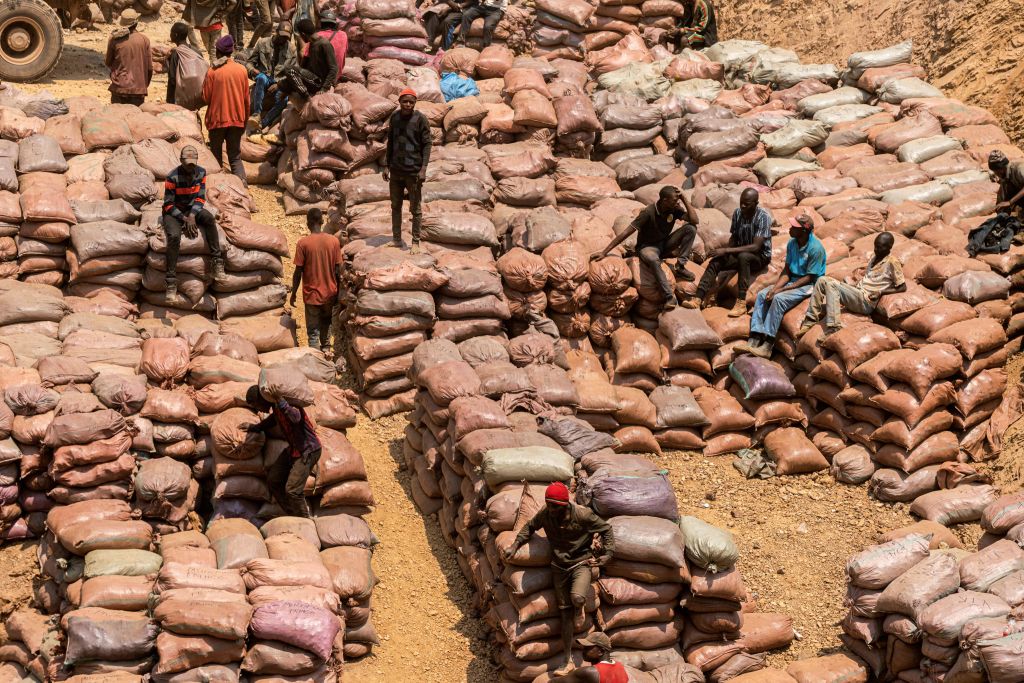ADF STAFF
Where the Aruwimi River meets the Congo River in the heart of the Democratic Republic of the Congo (DRC), residents of Basoko feel the effects of their country’s growing relationship with Chinese mining operations.
Fisherman Michel Basosila once sold smoked fish upriver in the port town of Kisangani. Today, he sells cassava fufu.
“This has become my only stream of income,” Basosila told Global Press Journal. “Today, I sell cassava fufu because fish have become too rare and too expensive, and I don’t make any profit.”
Over the last decade, China has dramatically increased its presence in the DRC, a major source of cobalt and other metals used in smartphones, electric vehicles and other products that use rechargeable batteries. Along the way, China has also pledged greater support for the DRC’s military as a way to protect its investment in the country against illegal miners and resident protests.
The DRC produces 71% of the world’s cobalt. Chinese companies own 15 of the 19 mines extracting that resource. About 80% of the DRC’s cobalt goes to China for processing.
China’s expansion in the DRC has paved the way for government corruption and growing conflicts between mine operators and residents of the regions where they operate.
“One of the biggest deals in the history of the Democratic Republic of the Congo is also one of the dirtiest,” J.R. Mailey, director of investigations at The Sentry investigative and policy organization, wrote in “The Backchannel,” a report on China’s mining operations in the DRC.
As they mined billions of dollars in minerals in the DRC, Chinese companies also pumped as much as $55 million into the pockets of the family of the DRC’s then-President Joseph Kabila through a Gabonese bank owned by his brother, according to The Sentry.
In their report, analysts wrote: “Put differently, a generational investment in the DRC’s potential, one meant to help heal the wounds from decades of mismanagement and successive wars, in fact served another purpose all too prevalent in the world’s resource-dependent economies: lining the pockets of the powerful with the wealth buried beneath the impoverished population’s feet.”
As it has expanded in the DRC, China has provided training to the DRC’s military and pledged to provide even more. China’s offer of military assistance to the DRC comes at a time when residents are growing frustrated with Chinese mining companies’ behavior.
In 2019, the military deployed soldiers to keep illegal miners out of the Tenke Fungurume mine owned by China Molybdenum Ltd. At the time, a military spokesman said the deployment was ordered “because the company contributes to the economy of this country.”
Human rights groups say such deployments run the risk of creating human rights violations and further antagonizing residents, who, like those in Basoko, already find their livelihoods and health threatened by the mines.
A 2021 study by Congolese researchers Jean De Dieu Mangambu Mokoso, Asimbo Bondoo Norbert and Ekele Mbenga Robert argues that plans to open new mining operations along the Aruwimi will create more air pollution, deforestation and flooding.
The government of current President Felix Tshisekedi has made progress toward transparency in the mining sector but needs to do more to publish contracts and revenues, according to anti-corruption organization the Extractive Industries Transparency Initiative.
In February, the government said it had appointed a special administrator for six months to run a Chinese-owned mine because of a dispute with the mine’s minority owner. By June, mine operators said nothing there had changed.
China continues to expand its support for the DRC’s military. Doing so helps China guarantee the uninterrupted flow of cobalt, copper and other valuable minerals. It also builds relationships with the DRC’s military leaders, potentially shutting out other nations, according to Robert Bociaga, writing in The Diplomat.
While a select few military and civilian leaders may benefit from their relationship with Chinese mining companies, residents along the Aruwimi and other rivers feel the pain.
“This river is a source of revenue for me and my family, but for the past two years, I haven’t been able to catch,” fisherman Charles Baima told Global Press Journal. “Life has become too hard for me.”

